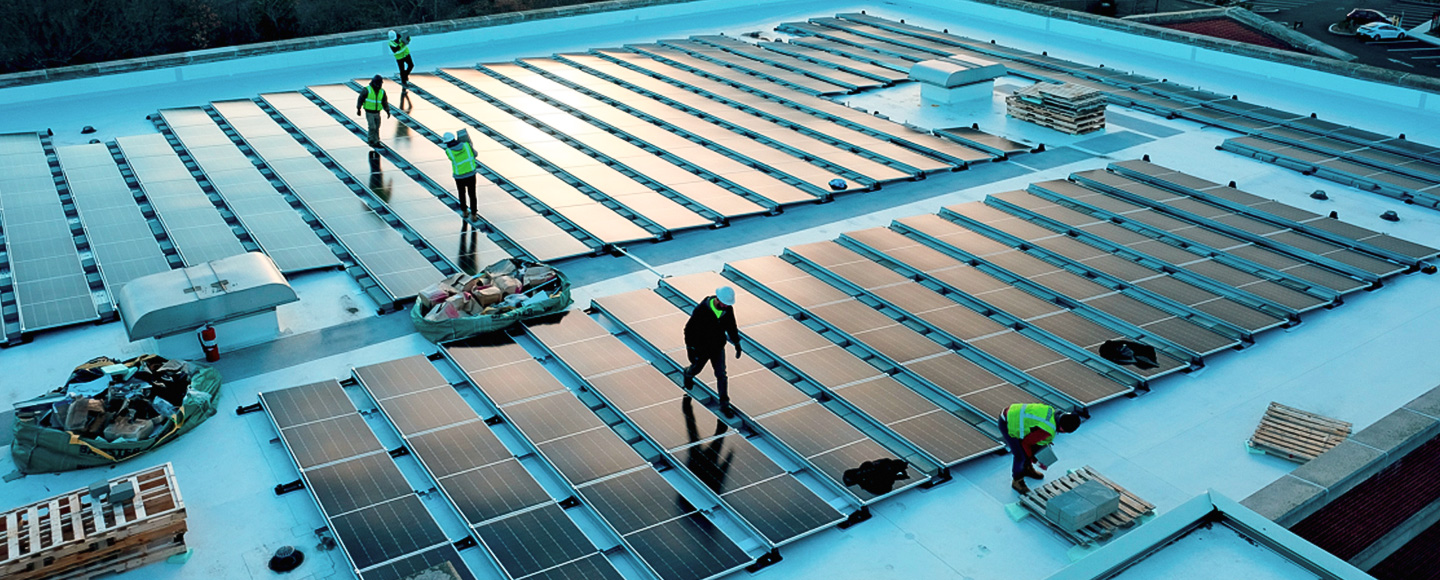As emission reduction mandates gain traction in Massachusetts, commercial building owners face growing pressure to adopt sustainable practices. With the implementation of stretch energy codes and net zero opt-in energy codes in communities throughout the state, decarbonization has become mandatory in most places.
While a path to compliance may seem daunting and expensive, it also presents an opportunity for proactive businesses to save money. Solect Energy can be your trusted partner for tailored solar and energy storage solutions that drive compliance, unlock incentives, enhance building efficiency, and future-proof your business.
One example of a decarbonation mandate is Boston’s BERDO 2.0 (Building Emissions Reduction and Disclosure) which is being closely watched throughout the state. It is pivotal for decarbonization, requiring emissions reporting and setting standards for existing buildings. Compliance is essential to avoid penalties and achieve the ambitious goal of net zero emissions by 2050. Buildings included in BERDO 2.0 are non-residential buildings larger than 35,000 square feet who must report emissions annually by May 15th and meet emissions performance standards starting in 2025. Non-residential buildings over 20,000 square feet or residential buildings with 15 or more units must report emissions annually by May 15th and meet standards starting in 2030.
Adopting energy reduction strategies is essential for compliance and can be achieved with some of the following – onsite solar and battery storage, LED lighting, efficient HVAC systems, insulation, and smart building technologies. The only emissions reduction strategy that may not require a cost to you is onsite solar and energy storage.
Onsite Solar Can Power Your Compliance
Renewable energy, particularly solar power, is crucial for compliance and offers significant financial advantages. Onsite solar installations, like rooftop or carport systems, reduce grid dependence and result in significant energy bill savings. Additionally, federal and state incentives, such as the Investment Tax Credit (ITC) and the Solar Massachusetts Renewable Target (SMART) program, further enhance financial returns.
The ITC allows businesses to deduct a portion of solar installation costs from federal taxes. Recent legislation increased the ITC to 30% and introduced additional incentives, potentially providing a total tax credit of 40% or more for eligible projects. The SMART program offers fixed monthly cash payments for 20 years to businesses and public entities adopting solar, with greater incentives for early adopters.
The only emissions reduction strategy that may not require a cost to you is onsite solar and energy storage.
Harness the Potential of Energy Storage
Both ITC and SMART incentivize energy storage as well. Combining onsite solar with storage allows you to store excess energy further reducing grid reliance, and minimizing peak demand charges. Plus, energy storage can provide a clean source of power during outages.
Empower Compliance with Solect Energy
Solect Energy is dedicated to empowering your compliance journey with tailored solar and energy storage solutions. As your trusted solar and energy storage provider, we are committed to helping you achieve compliance while unlocking the extensive benefits of sustainability, financial incentives, operational efficiency, and future-proofing your business. Partnering with Solect Energy means contributing to a more sustainable future while ensuring the long-term success of your business.
Discover how Solect Energy can power your tomorrow.
Visit go.solect.com/mandates or call 508-598-3511.
December 7, 2023

